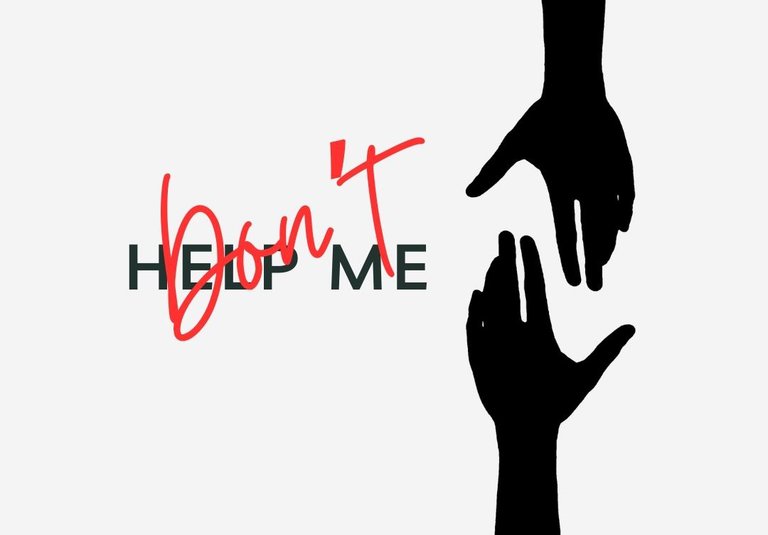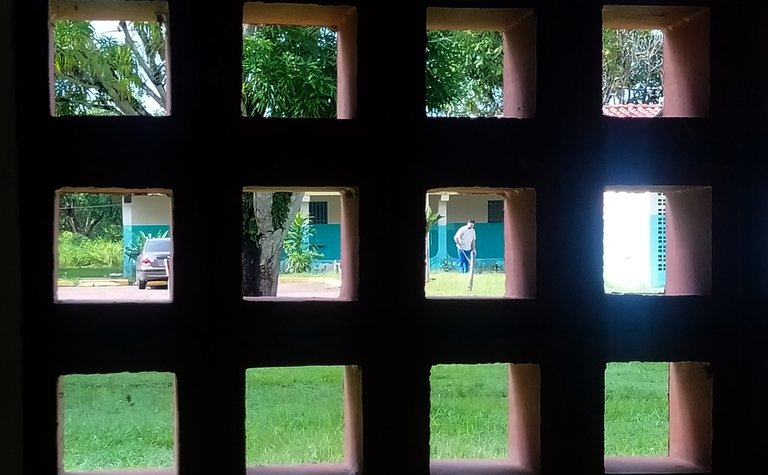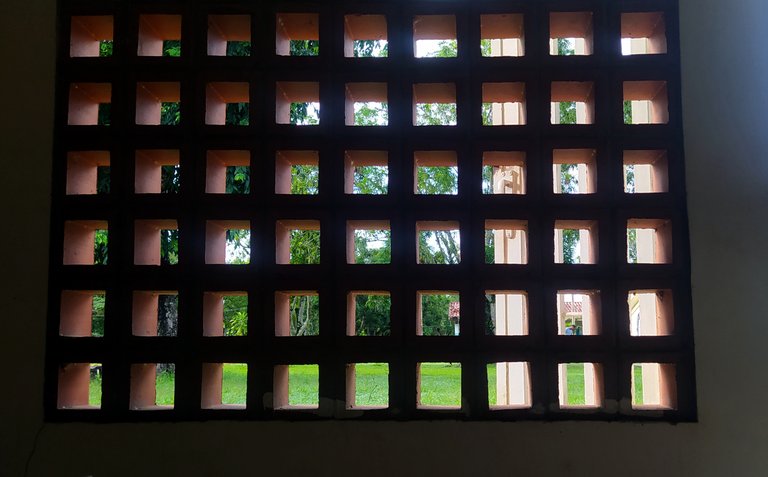What is worse: not asking for help or not knowing that you need it? I have not met anyone (now or in the past) who has never needed help. We have all needed help at some time. But sometimes it's not easy to ask for it, simply because we don't think we need it. Could the reason be pride? Maybe, but not always. Let's talk about that. Come with me, please.

It is not so complicated to conclude that a proud person does not like to ask for help. I have expressed that way of thinking, I have to admit. That characteristic makes the individual believe that he or she is superior to others. ‘Do I need help? Never! I can do it on my own. And this he will do over and over again, as a pattern. From the outside, it is difficult to keep trying to help a person with these characteristics, and even more so if the stumbling block is the same stone.
However, as all human beings are not the same (even oneself changes over time), we cannot lump us all together. And I have thought about those who are reluctant to ask for help because they think they don't need it. Is that pride?
Recently I was in a waiting room of a public institution. One of the walls was made of these bricks that are hollow, placed in such a way that you can see through them and it helps the airflow to circulate, which by the way we are very grateful for on hot days. So, can you see through them? Yes. Can you see everything? No.

Here's my angle of view. It looks like a puzzle, doesn't it? From the elements we have, we can conclude that there's a structure, green areas, a tree and what appears to be a car park. There's a person. What's he doing?
Maybe, maybe, with these elements we can conclude that we don't need help to contextualise what we see. It looks like it poses no danger and it looks like we can know where we are and what to do. Maybe, maybe, maybe, we do this many times in our brain: we take shortcuts, as a survival method. That way we don't analyse each and every element, but we look at some elements, compare them with previous experiences and bam! We make some conclusion, which we will later see if it is correct or not.
But isn't it better not to have that hollow wall in order to have a more complete field of vision, or to stand up towards an advantage or a door that gives us a more privileged view? That would be of great... ...help. But do we see that we need it?
Yes, part of what is needed is to recognise that we need to change something, and then change or adjust something to make it happen. ‘I've always done it this way. ‘What I have is fine. ‘It's not necessary. Phrases like that take away the possibility of having the full picture of a situation, and as you can see in the picture, compared to the outside, the side I'm on is very dark.
So what do you call the darkness that prevents someone from seeing the whole picture? Well, I dare not label it. In every human being it may have a different name. But here's the point: he doesn't see that he needs more vision or light. What comes to him through the holes is enough.

Pride is a very ugly trait, truth be told. But it is not always the reason why someone does not ask for help. It seems that part of helping a person is to draw out the reasons why they need a hand or the benefits they will get if they let you support them. It is good to rule out the possibility that they are in ignorance of what is going on, not seeing what we see from the outside. In other words: rule out that the other person is in darkness (mentally, spiritually, emotionally). To be like this must feel extremely unhappy, but count on us.
The easiest way is to label: ‘He is proud’. But maybe he's just in darkness, and that's when he needs our help the most. So which is worse: not asking for help or not knowing you need it? How great pride can be! So can darkness.



¿Qué es peor: no pedir ayuda o no saber que la necesitas? Yo no he conocido (ni ahora ni en el pasado) que no haya necesitado ayuda jamás. Todos hemos necesitado ayuda alguna vez. Pero a veces no es sencillo solicitarlo, sencillamente porque no creemos que la necesitamos. ¿La razón puede ser el orgullo? Tal vez, pero no siempre. Hablemos de eso. Acompáñame, por favor.

No es tan complicado concluir que una persona orgullosa no le guste pedir ayuda. Yo he manifestado esa forma de pensar, tengo que admitirlo. Esa característica hace de que el individuo se crea superior a los demás. "¿Necesitar ayuda yo? ¡Jamás! Yo puedo sólo." Y esto lo hará una y otra vez, como un patrón. Desde afuera, es difícil seguir intentando ayudar a una persona con esas características, y más aún si el tropiezo es la misma piedra.
Sin embargo, como todos los seres humanos no somos iguales (incluso uno mismo va cambiando a través del tiempo), no podemos meternos a todos en el mismo saco. Y he pensado en aquellos que se resisten a pedir ayuda pero porque creen que no la necesitan. ¿Será eso orgullo?
Recientemente estuve en una sala de espera de una institución pública. Una de las paredes estaba hecha con éstos ladrillos que son huecos, colocados de tal forma que se puede ver a través de ellos y contribuye a que la corriente de aire circule, que por cierto agradecemos mucho en los días calurosos. Entonces, ¿se puede ver a través de ellos? Sí. ¿Se puede ver todo? No.

Aquí está mi ángulo de visión. Parece un rompecabezas, ¿no? Con los elementos que tenemos podemos concluir que hay una estructura, áreas verdes, un árbol y lo que parece ser un estacionamiento. Hay una persona. ¿Qué está haciendo?
Tal vez, tal vez, con éstos elementos concluyamos que no necesitamos ayuda para contextualizar lo que vemos. Parece que no representa ningún peligro y parece que podemos saber dónde estamos y qué hacer. Tal vez, tal vez, hagamos ésto muchas veces en nuestro cerebro: tomar atajos, como método de supervivencia. De esa forma no analizamos todos y cada uno de los elementos, sino que vemos algunos, los comparamos con experiencias anteriores y ¡pum! Hacemos alguna conclusión, que luego veremos si es correcta o no.
Pero, ¿no es mejor no tener esa pared hueca para tener un campo visual más completo? ¿O levantarnos hacia una ventaja o una puerta que nos aporte una visión más privilegiada? Eso sería de gran... ...ayuda. Pero, ¿vemos que la necesitamos?
Sí, parte de lo que se necesita es reconocer que necesitamos cambiar algo, y luego cambiar o ajustar algo para que esta llegue. "Yo siempre lo he hecho así". "Con lo que tengo está bien". "No es necesario". Frases como esa nos quitan la posibilidad de tener el cuadro completo de una situación, y tal como se ve en la foto, comparado con el exterior, el lado donde estoy está muy oscuro.
Entonces, ¿cómo se llama esa oscuridad que impide a alguien ver el cuadro completo? Pues, no me atrevo a etiquetarlo. En cada ser humano puede tener un nombre diferente. Pero éste es el punto: no ve que necesita más visión ni luz. Con la que le llega a través de los hoyos es suficiente.

El orgullo es una característica muy fea, la verdad sea dicha. Pero no siempre es la razón por la que alguien no pide ayuda. Parece que parte de la ayuda a una persona es dibujarle las razones por las que necesita una mano o los beneficios que obtendrá si deja que lo apoyen. Es bueno descartar la posibilidad de que esté en ignorancia de lo que está pasando, no vea lo que nosotros vemos desde afuera. En otras palabras: hay que descartar que la otra persona esté en oscuridad (mental, espiritual, emocional). Estar así debe sentirse sumamente desdichado, pero cuenta con nosotros.
El camino más sencillo es etiquetar: "Es un orgulloso". Pero tal vez sólo esté en oscuridad, y es cuando más necesita nuestra ayuda. Entonces, ¿qué es peor: no pedir ayuda o no saber que la necesitas? ¡Cuán grande puede ser el orgullo! La oscuridad también.

FUENTES / SOURCES
Cover: Made with the free version of CANVAS || Portada: Hecho con la versión gratuita de CANVAS
Images: Shot with my Xiaomi Redmi Note 8 phone and edited with GIMP || Imágenes: Realizadas con mi teléfono Xiaomi Redmi Note 8 y editadas con GIMP
Banner: Made by me in GIMP with my own images and free resources from the site pfpmaker.com || Banner: Hecho por mi en GIMP con imágenes propias y recursos gratuitos del sitio pfpmaker.com
Language: Post written in Spanish and then translated into English through DeepL || Idioma: Post redactado en español y luego traducido al inglés mediante DeepL